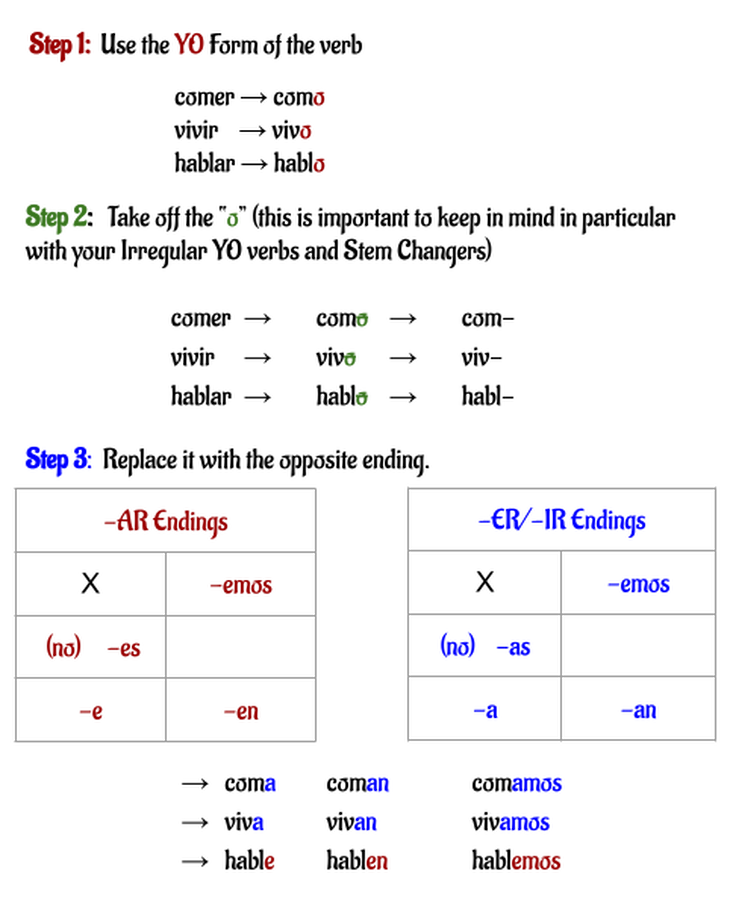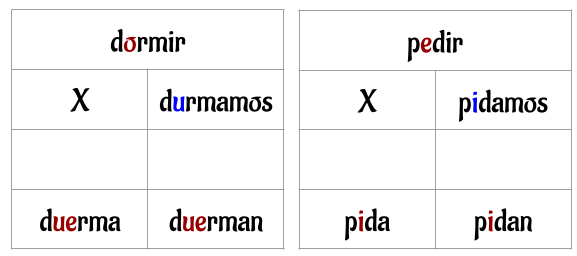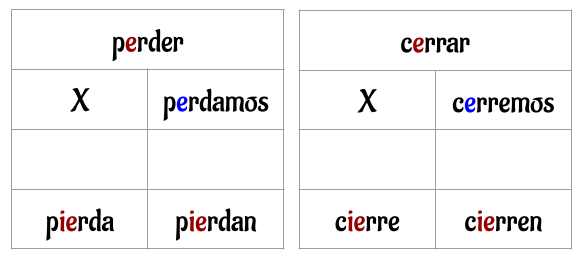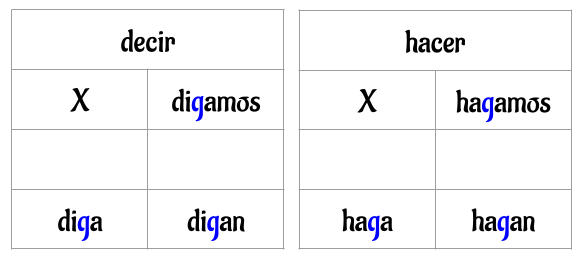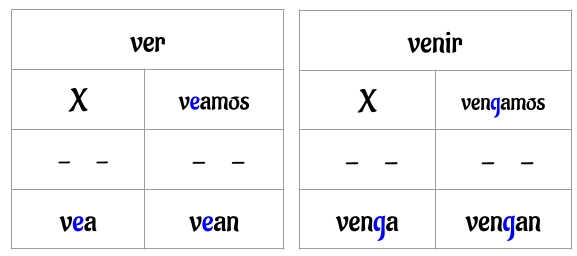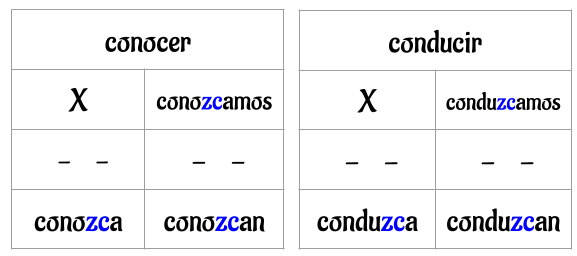Formal Commands
Here is an instructional video addressing the Formal Commands by Sr. Shane Williams. Take notes and compare it with the notes below to ensure that you have all the important information.
Moods in Spanish and English
For some basic background, it is important to understand that in language there are not only different tenses to work with, but also different Moods. Throughout Spanish 1-3 you have been dealing with what is called the INDICATIVE Mood.
What is a MOOD? A mood is the form the verb takes to show how it is to be regarded (ie. as a fact, a command, a wish, an uncertainty)
INDICATIVE Mood is a verb form that makes a statement of a fact or a question. This can happen in any tense.
Examples:
What is a MOOD? A mood is the form the verb takes to show how it is to be regarded (ie. as a fact, a command, a wish, an uncertainty)
INDICATIVE Mood is a verb form that makes a statement of a fact or a question. This can happen in any tense.
Examples:
|
Present Tense
We play outside with my cousins. They have to find the thief real soon. Where do you find great shoes? Are you going to the party tonight? Simple Past (Preterite) My family and I went to Colombia las summer for vacation. She found the child in the woods playing with a squirrel When did you see the movie? Did you go to the meeting last night? Future Tense We will look for it in the morning. I will not go to the new university next year. Will you drive sister to school tomorrow? How will you get to the parade on Saturday? |
In each one of these examples, something is being declared or made out to be a fact. The only thing that changes is WHEN that event takes place, the tense.
Now to Commands
Since the Indicative Mood has already been addressed, we are going to only address the IMPERATIVE Mood or Commands here.
First it is important to understand the role of commands in language. A command gives a directive. It either orders someone to do something, or instructs someone how to do something. In English, this is simply done by using just the verb: to go --> Go. to speak --> Speak.
Examples:
First it is important to understand the role of commands in language. A command gives a directive. It either orders someone to do something, or instructs someone how to do something. In English, this is simply done by using just the verb: to go --> Go. to speak --> Speak.
Examples:
|
Slow Down.
Eat your carrots. Take a right. Stop talking. |
So, how do we go about forming the Formal Commands? This is primarily for Usted, Ustedes and Nosotros.
Here are the three basic steps:
Here are the three basic steps:
There are 5 groups of verbs you need to be aware of when working with Commands in Spanish.
- Regular Verbs (examples can be seen above)
- Stem Changers
- Irregular YO Verbs
- Spell Changers (-car, -gar, -zar, -ger, -gir)
- The Dysfunctional 5
2. Stem Changers
3. Irregular YO Verbs
This group can be just as easy to remember as the regular verbs, if you can remember the verbs that have an irregular YO form. It is important to recognize that they will have that same form for all of the Formal Commands. Here are some examples below.
3.
|
conocer → yo conozco
hacer → yo hago tener → yo tengo venir → yo vengo decir → yo digo conducir → yo conduzco ver → yo veo |
conozca conozcan conozcamos
haga hagan hagamos tenga tengan tengamos venga vengan vengamos diga digan digamos conduzca conduzcan conduzcamos vea vean veamos |
